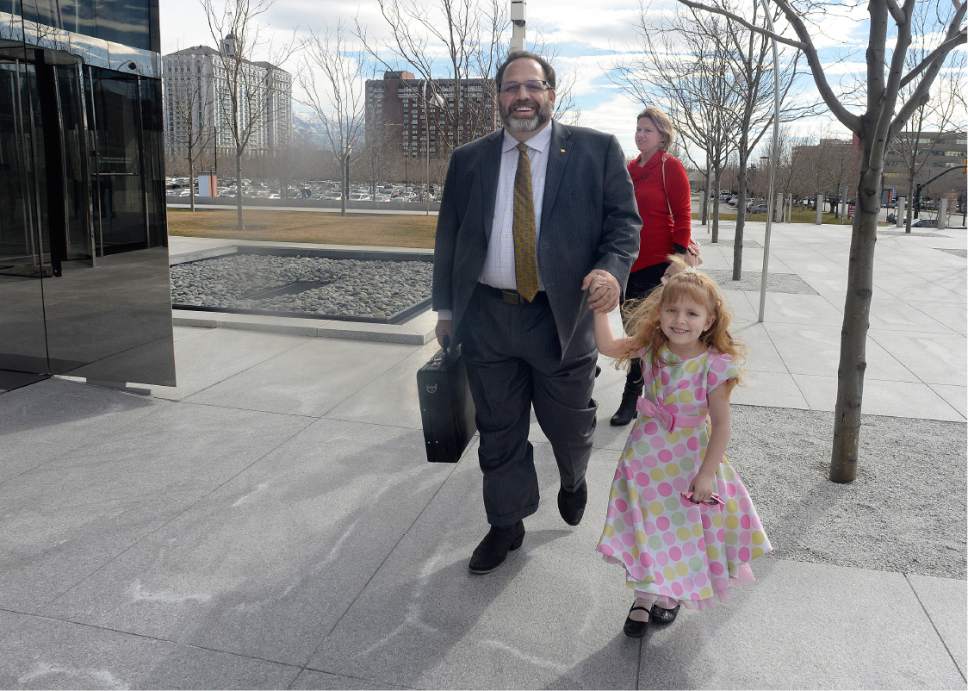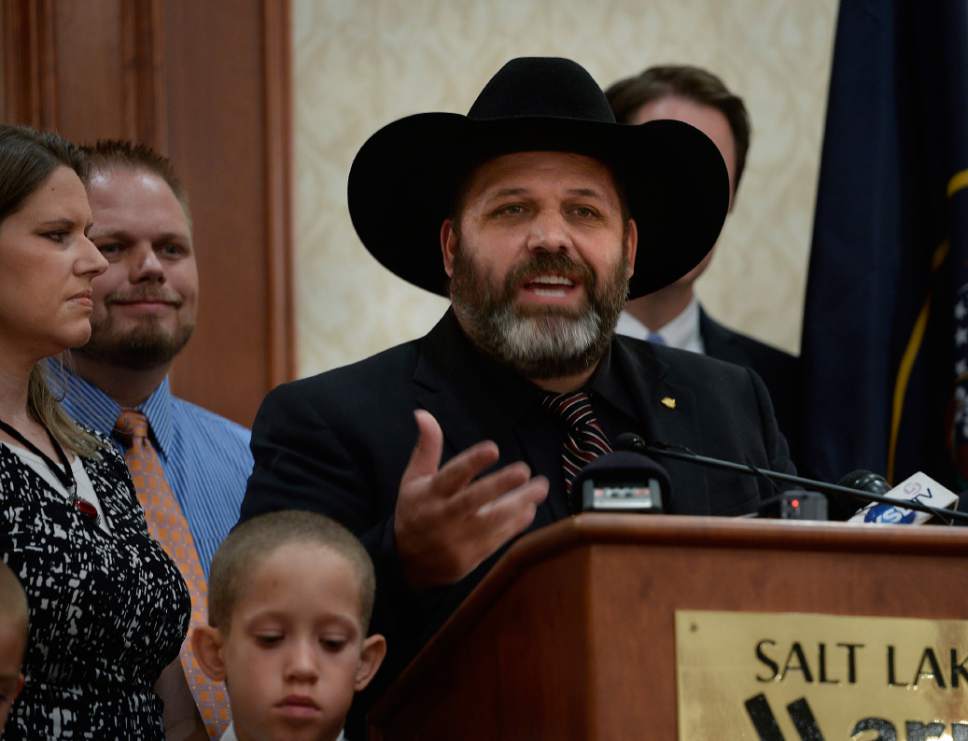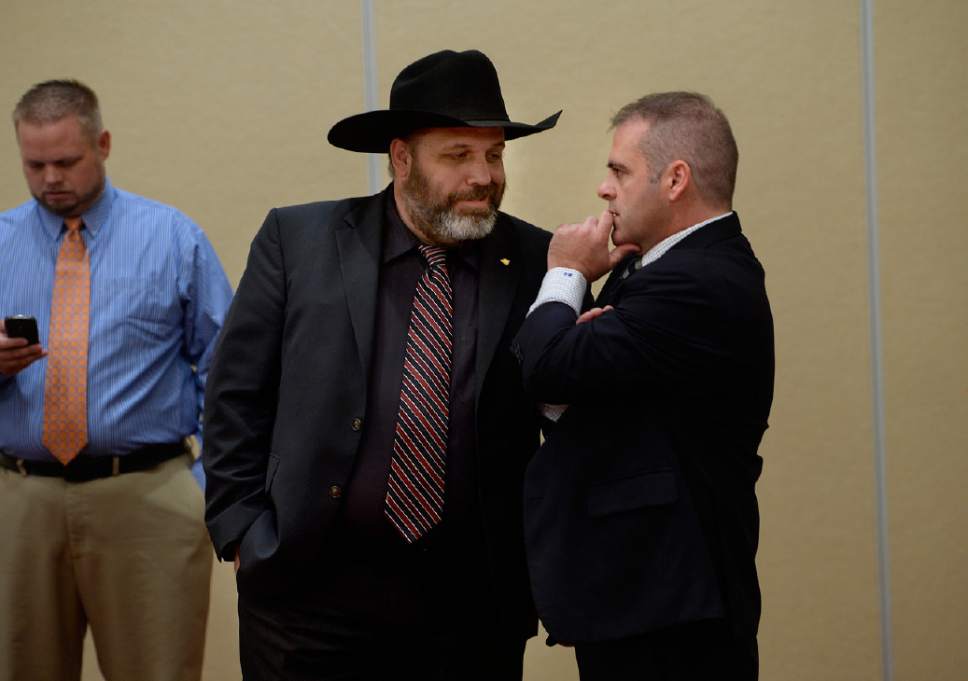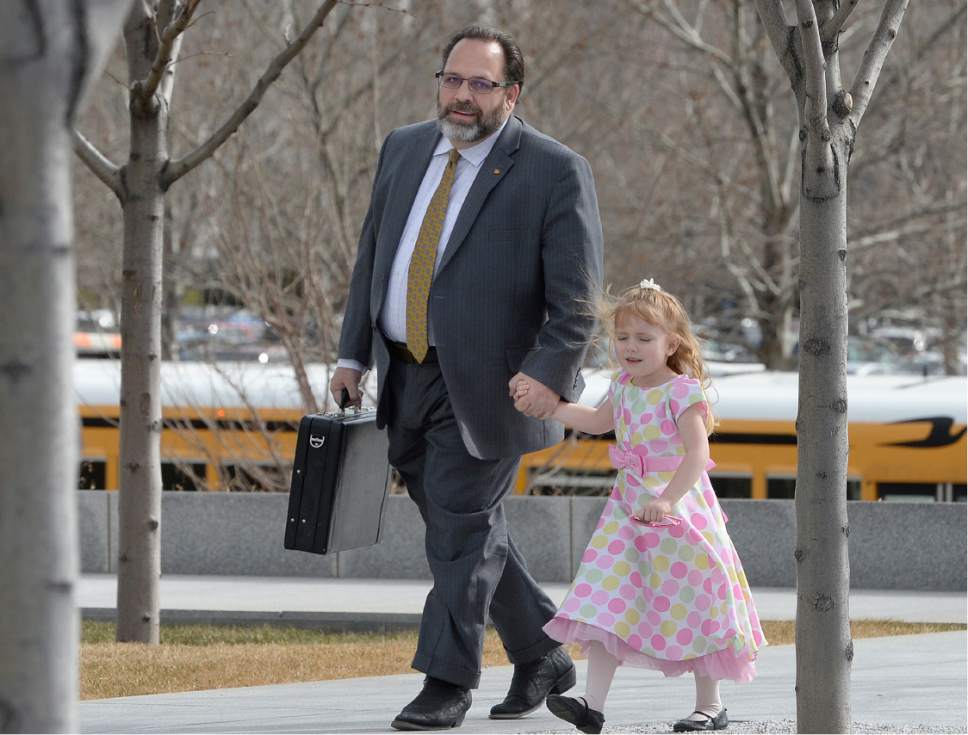This is an archived article that was published on sltrib.com in 2017, and information in the article may be outdated. It is provided only for personal research purposes and may not be reprinted.
Former Utah County real estate guru Rick Koerber will act as his own attorney to fight a new criminal indictment that alleges he operated a Ponzi scheme that took in about $100 million before his companies collapsed.
Koerber pleaded not guilty on Thursday in an initial appearance on the new federal grand jury indictment that charges him with 18 counts of securities and wire fraud, money laundering and tax evasion. If convicted, he faces up to 20 years in prison on the wire fraud charges, which carry the heaviest possible penalty.
Defense attorney Randy Ludlow appeared with Koerber and was expected to be appointed by the court to represent him after Koerber filled out a form saying he couldn't afford to hire is own attorney.
But Koerber told U.S. Magistrate Judge Eveyln Furse that he either wanted attorney Marcus Mumford, who represented him on previous indictments that ended up getting dismissed, or to act as his own attorney.
Koerber said his case is so complex, with so many twists and turns, that no attorney new to the case could get up to speed quickly for a trial.
"Under these circumstances, given the litigation history of my defense, I would prefer to represent himself," Koerber said. "But I would prefer Mr. Mumford."
Furse said she would appoint Ludlow, not Mumford, and Koerber opted to go it alone.
Furse set a trial to begin April 24, though almost all initial trial dates get changed.
From 2004 to 2008, Koerber ran a series of entities grouped around his companies called Franklin Squires Cos. and Founders Capital, through which he taught a real estate investment strategy called "equity milling." The companies took in about $100 million in investments by telling potential investors they could earn 2 percent to 5 percent per month.
Indictments alleged that Koerber's enterprise was not making money and that he had used about $50 million of investor moneys to repay other investors to make the operation appear profitable.
In addition, he allegedly spent some of the investor funds for personal uses, including $850,000 to buy restaurants, more than $1 million to purchase luxury cars, about $5 million to finance a movie and about $425,000 to mint coins.
Koerber was originally indicted on three counts in May 2009, with 19 additional charges added in a second indictment that November. A third indictment was sought by prosecutors after U.S. District Judge Clark Waddoups tossed out a key piece of evidence from the first two.
Then in 2014, Waddoups dismissed the 18 charges remaining charges, citing "questionable ethical conduct" and a "pattern of neglect" by government prosecutors in a ruling that left no room for new charges.
Government prosecutors appealed and the case was sent back for review. A new judge ruled that the case could be refiled.











